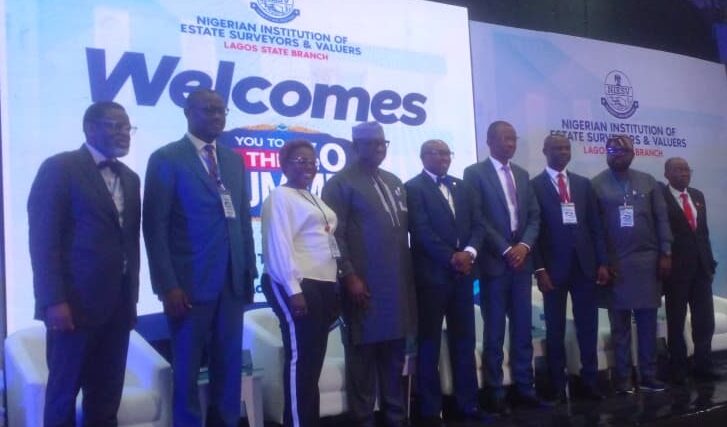By: Tijani Salako.
At the Nigerian Institution of Estate Surveyors and Valuers (NIESV) Lagos State chapter summit, where stakeholders discussed strategies for building trust and driving excellence in the property industry, expert in auctioning have called for the inclusion of auctioneering studies into the Nigeria’s academic curriculum, emphasising its essentiality in professionalising the real estate sector and promoting transparency in asset disposal.
Speaking at the event, the guest lecturer Esv Tunji Agoro, Managing partner Olatunji Agoro & co traced the history of auctioneering in Nigeria to the 19th century, when practitioners were viewed as unskilled and poorly regarded. However, he noted that the perception has since changed, as auctioneers now play critical roles in the sale of government assets, mortgage recoveries, and liquidation of excess stock for public and private institutions.
According to Esv Agoro, auctioneering has evolved into a sophisticated and transparent mechanism for market-driven price discovery, helping governments and corporations achieve fair value in asset disposal. “Auctioning has become the most reliable and transparent method of disposing government-used and seized properties,” he stated, stressing that the process embodies fairness, transparency, and accountability.
Highlighting the need for knowledge-based practice, the expert urged Nigerian universities and professional bodies to introduce auctioneering as a core component of real estate education. He argued that equipping future estate valuers with auction principles would enhance professional competence and global competitiveness. “We need to start building ourselves through continuous learning. Auctioneering should be taught as part of estate management training,” he said.
Agoro further give an in-depth explanation of major auction terminologies and types, including the ‘English auction’ where bids ascend until the highest offer is accepted and the ‘first-price sealed-bid auction’, in which bidders submit confidential offers. These, he explained, are complemented by innovative methods such as mobile and online auctions, which allow buyers from across the world to participate virtually.
The speaker described mobile auctions as a modern development involving the movement of goods in designated trucks to specific venues for real-time bidding, while online auctions leverage digital platforms to connect global bidders. He noted that these emerging formats reflect how technology is redefining transparency and participation in the global real estate landscape.
He further identified critical professional competencies for successful auctioneering, including marketing skills, accounting knowledge, understanding of property valuation, and mastery of technology. “An auctioneer must be a professional with a body of knowledge and skill in sales, marketing, and valuation. He must know the limit of his authority as an agent of the principal,” he said.
Explaining key auction principles, Esv Agoro referenced terms such as reserve price, the minimum acceptable sale value set by the vendor, and the concept of duty of care owed to both sellers and bidders. He emphasised that ethical responsibility and openness are essential to sustaining trust in the process, aligning with the summit’s broader message of professional integrity.
Agoro however, outlined the range of assets typically traded through auctions, including real estate, vehicles, industrial equipment, jewelry, and telecommunications spectrum licenses, “high-impact properties” such as those located in Banana Island, Ikoyi, and Victoria Island represent prime opportunities for structured and transparent auctions that could boost investor confidence.
Linking his submission to the summit’s advocacy for trust and excellence, the auctioneer maintained that adopting auction principles within Nigeria’s real estate practice would reinforce transparency and restore public confidence. “Excellence builds trust,” he reiterated, noting that professional auctioneering supports the same ethical and global standards that NIESV is promoting.
He urged practitioners to embrace a Personal Development Plan (PDP), emphasising continuous education as the foundation for professionalism. “If we must gain international relevance, we must build our competence and align with global best practices,” he advised.
Participants at the summit agreed that integrating auctioneering into formal academic and professional training would not only enhance credibility in asset transactions but also align Nigeria’s real estate sector with international standards of transparency, accountability, and ethical conduct.

